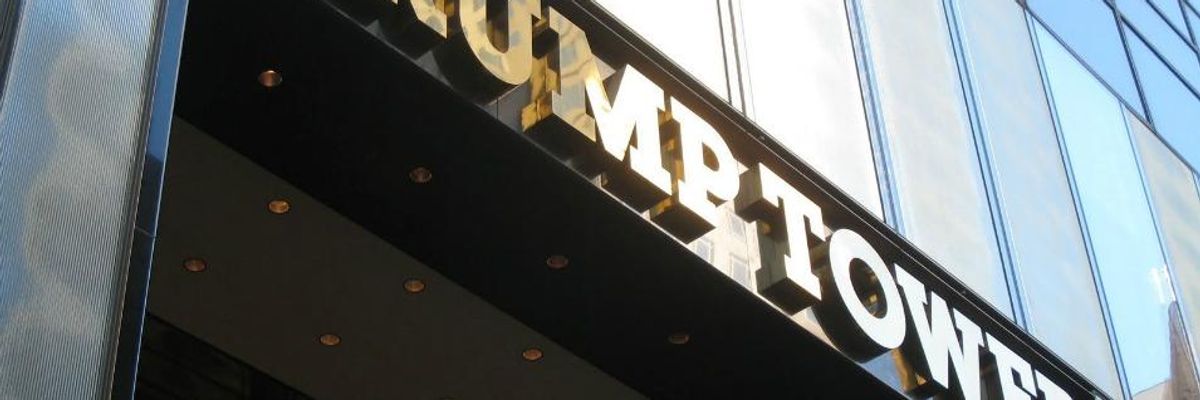The Trump family's charity, the Trump Foundation, agreed to dissolve Tuesday amid a lawsuit filed by New York State which accuses the organization of a "shocking pattern of illegality"--but the Trumps' legal troubles won't end with the dissolution.
New York Attorney General Barbara Underwood filed a lawsuit against the Trump Foundation last June, accusing the Trump family of using the charity for immense "personal and political gain." Underwood will continue to pursue her suit against the foundation, seeking $2.8 million in restitution and a court order banning Trump and his three eldest children from serving on the boards of any New York charities in the future.
"This is an important victory for the rule of law, making clear that there is one set of rules for everyone," Underwood said in a statement. "We'll continue to move our suit forward to ensure that the Trump Foundation and its directors are held to account for their clear and repeated violations of state and federal law."
Under the agreement, the foundation has 30 days to shut down and determine which New York charities will be given the remainder of its assets.
President Donald Trump established the foundation in 1987 and served as its president until he took office in January 2017. His sons Eric and Donald Jr. still serve on its board.
"For years, Trump appeared to treat the foundation--which was, by law, an independent entity--as a checkbook for gifts that bolstered his interests." --David Farenthold, the Washington PostUnderwood's suit was filed after a two-year investigation, which found that the family used the foundation's funds to settle legal claims against Trump's real estate empire and to purchase a $10,000 portrait of Trump.
The family also funneled the foundation's money to Trump's 2016 presidential campaign--a violation of federal law, which states that charities are "prohibited from participating or intervening in any political campaign on behalf of a candidate."
"Our petition detailed a shocking pattern of illegality involving the Trump Foundation--including unlawful coordination with the Trump presidential campaign, repeated and willful self-dealing, and much more," Underwood said.
David Farenthold's extensive reporting on the foundation's activities for the Washington Post sparked New York state's investigation.
"The Post's reporting showed that, for years, Trump appeared to treat the foundation--which was, by law, an independent entity--as a checkbook for gifts that bolstered his interests," wrote Farenthold on Tuesday.
The foundation's funds, Farenthold wrote--which were ostensibly meant to serve "charitable, religious, scientific, literary, or educational purposes"--were used for fees ranging from $7 to pay for Donald Trump Jr.'s enrollment in the Boy Scouts when he was a child to more than $264,000 for the restoration of a fountain outside one of Trump's hotels in New York.
"For as long as he has been rich and famous, Donald Trump has also wanted people to believe he is generous. He spent years constructing an image as a philanthropist by appearing at charity events and by making very public--even nationally televised--promises to give his own money away. It was, in large part, a facade," Farenthold wrote in October 2016 when he first reported on his findings.
"Instead, throughout his life in the spotlight, whether as a businessman, television star or presidential candidate, The Post found that Trump had sought credit for charity he had not given--or had claimed other people's giving as his own," he added.
Trump's lawyers attempted to have Underwood's lawsuit dismissed--not disputing her charges but asserting that a sitting president is immune from such legal action. A New York state Supreme Court judge ruled last month, however, that Trump's team "failed to cite a single case" supporting that claim.
Anand Giridharadas, author of the book Winners Take All, about philanthrophy among elites, pointed out that the shut-down of a sitting president's charity for blatant self-dealing is no doubt noteworthy--but that such conduct is far from unusual in the richest enclaves in the U.S. and around the world.
"What separates Trump from many elites is just sloppiness," Giridharadas wrote on Twitter.

